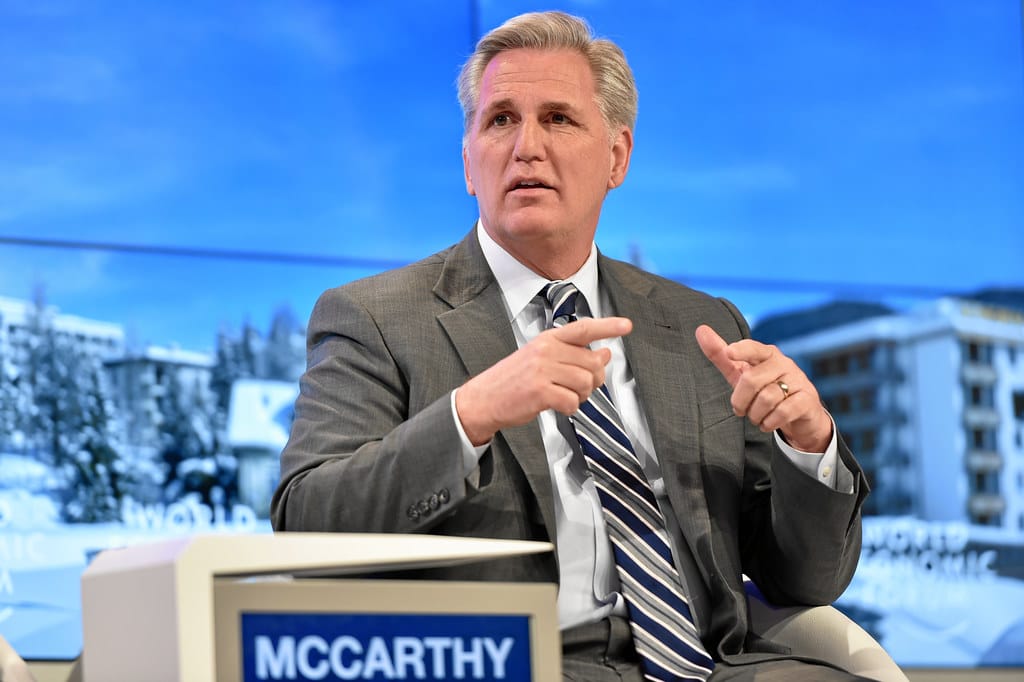Republicans Threaten Document Demand, Pew Likes Infrastructure Bill Direction, Connected Britain In Person
Republicans threaten companies that comply with Democrats records request, Pew highlights the good in infrastructure bill, Connected Britain in person.
Benjamin Kahn

WASHINGTON, September 1, 2021—Friction between House Democrats and Republicans is intensifying after a House committee demanded from companies records related to the January 6 riot at the Capitol.
In late August, the House Select Committee tasked with investigating the riot demanded records from more than 30 companies, including AT&T, Verizon, 4chan, Google, Facebook, Gab, TikTok, Snapchat, Twitch, Twitter, YouTube, Reddit, and Parler.
In response to these orders, House Minority Leader Kevin McCarthy, R-California, warned the companies that complying with such an order would be offside of the law.
“If these companies comply with the Democrat orders to turn over private information, they are in violation of federal law and subject to losing their ability to operate in the United States,” McCarthy told Fox News’ Tucker Carlson on Tuesday, though he neglected to clarify which law or statue the companies would be violating, continuing, “If they pursue this path, a Republican majority will not forget.”
This was a sentiment shared by other wings of the Republican party. When Rep. Marjorie Taylor Greene, R-Georgia, was invited onto Carlson’s show, she stated, “these telecommunications companies—if they go along with this, they will be shut down—and that’s a promise.”
Pew lauds passage of bipartisan infrastructure framework
Pew Trusts heaped praise Monday on the the Senate-passed infrastructure bill for its effort to continue supplying aid established by previous coronavirus legislation and give states more discretion on broadband funding.
On August 10, the Senate passed the $1.2 trillion bipartisan infrastructure framework that included $65 billion to improve and maintain digital network infrastructure and expand connectivity in underserved and unserved communities.
In a post on its website, Pew Trusts emphasized the legislation’s focus on bridging the digital divide and pointed to the bill continuing a trend established by the Coronavirus Aid, Relief and Economic Security Act and the American Rescue Plan Act. It also views as positive the bill’s departure from the reverse auction methods used in programs like the Rural Digital Opportunity Fund and instead focusing on allowing the states to deliver money where they see it most fits their purposes.
The organization referred to the bill’s approach to issues like affordability and adoption as “pragmatic,” and said that it will continue to provide evidence to legislators and the Biden Administration to support the bill and other policies that it views will work.
Additionally, Pew pointed to its own Broadband Education and Training Initiative designed to provide support to 17 states plus America Samoa—at no cost to the recipients—in order to facilitate the smooth deployment of their own broadband offices.
Connected Britain will be live and in-person
One of Britain’s largest connectivity events, Connected Britain, will be returning in person.
Much like the telecom and connectivity events held in the U.S. in recent months, there will be conversations about the lessons learned during the pandemic and how connectivity and networks may be improved in a post-Covid world.
The internet proved to be an invaluable resource during the pandemic—allowing many to work, attend classes, and receive healthcare from home.
“Our industry has been pivotal in providing and expanding on a communications framework that has helped people and organizations stay connected throughout the pandemic,” said Total Telecom Managing Director Rob Chambers.
The conference boasts a lineup featuring Matt Warman, a member of the UK’s Parliament serving as the minister for digital, as well as a host of CEOs and regional leaders in the connectivity and network industry.
The event will take place on September 21 and 22.









Member discussion